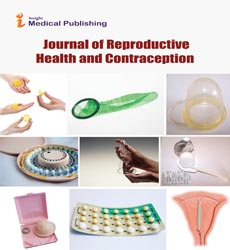Effect of Sex Hormone-Binding Globulin on Polycystic Ovary Syndrome: Mechanisms, Manifestations, Genetics, and Treatment
Bing He
Shengjing Hospital of China Medical University, China
Published Date: 2022-07-28Abstract
Polycystic ovary syndrome (PCOS) is one of the most common endocrine diseases causing infertility in women of childbearing age. It is characterized by hyperandrogenemia (HA), chronic anovulation, and polycystic ovary morphology (PCOM). Most women with PCOS have metabolic abnormalities. Sex hormone-binding globulin (SHBG), a transport carrier that binds estrogen and androgens and regulates their biological activity, is usually used as an indicator of hyperandrogenism in women with PCOS. Low serum SHBG levels are considered a biomarker of metabolic abnormalities and are associated with insulin resistance (IR), HA, and abnormal glucose and lipid metabolism in PCOS patients. SHBG is also related to the long-term prognosis of PCOS, whereas SHBG gene polymorphism is associated with PCOS risk. In addition, the administration of metformin (MET), glucagon-like peptide-1 receptor agonists (GLP-1 RAs), thiazolidinediones (TZDs), compound oral contraceptives (COCs), as well as nutrient supplements such as inositol (MI), vitamin D, and synbiotics can regulate SHBG levels to ameliorate PCOS complications and improve prognosis. This review focuses on the interaction between SHBG and various PCOS complications as well as the regulation of SHBG by various drugs and nutrients and its therapeutic effects on PCOS
Open Access Journals
- Aquaculture & Veterinary Science
- Chemistry & Chemical Sciences
- Clinical Sciences
- Engineering
- General Science
- Genetics & Molecular Biology
- Health Care & Nursing
- Immunology & Microbiology
- Materials Science
- Mathematics & Physics
- Medical Sciences
- Neurology & Psychiatry
- Oncology & Cancer Science
- Pharmaceutical Sciences
